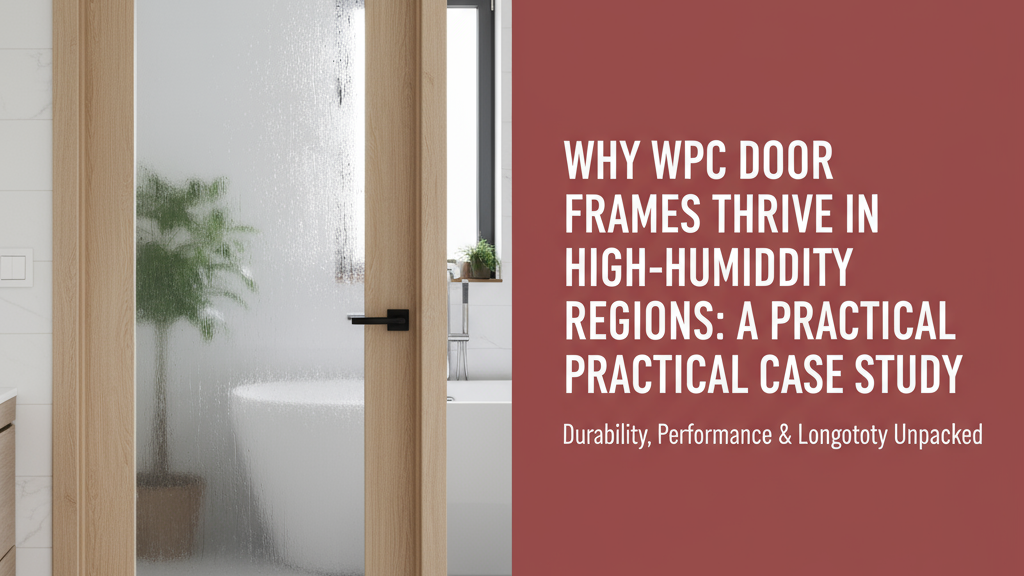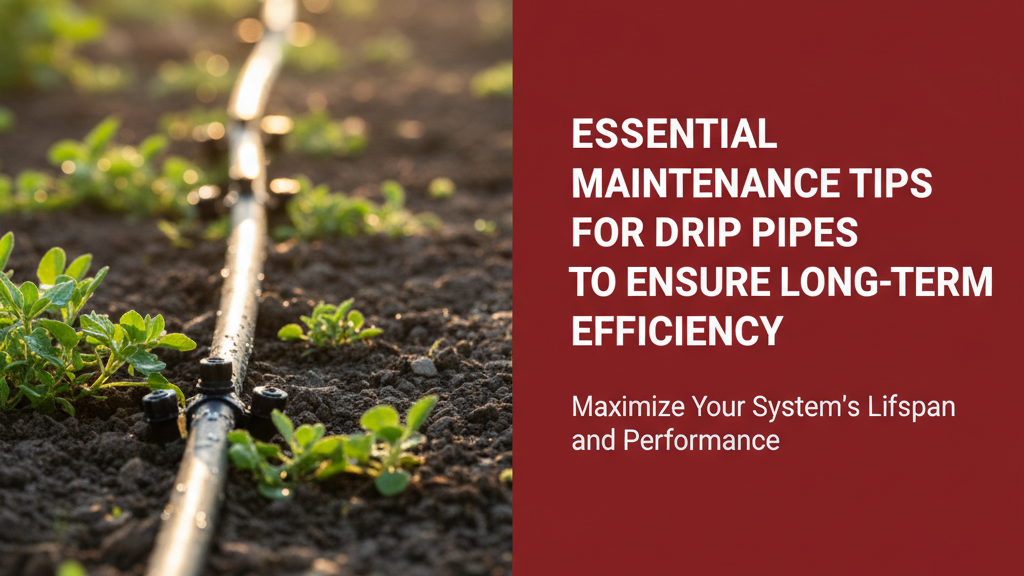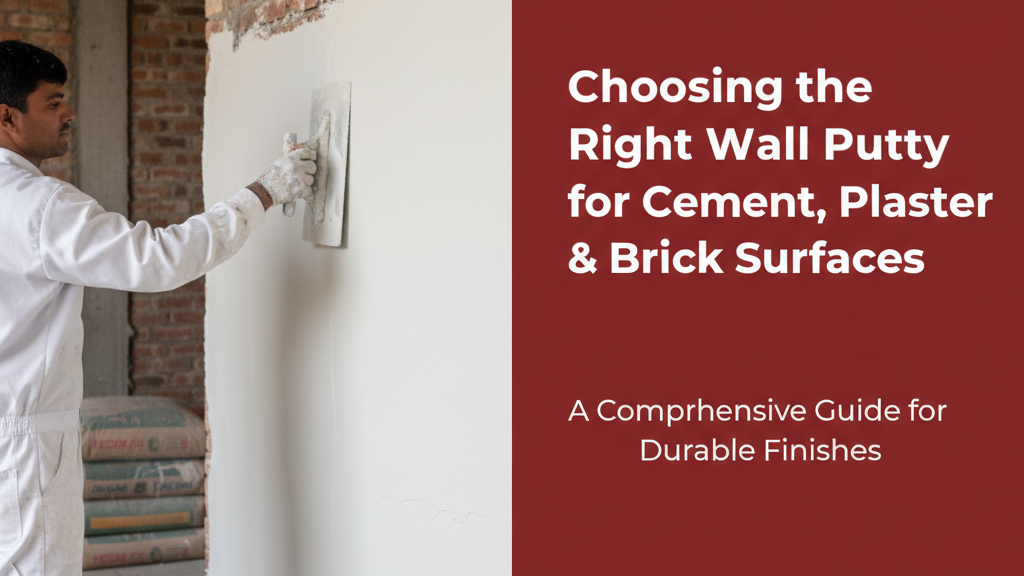Introduction to WPC Door Frames
Wood Plastic Composite (WPC) door frames have gained popularity in Indian construction for their unique blend of durability and aesthetic appeal. Combining wood fibre and thermoplastics under high pressure, WPC offers a balance between the natural look of wood and the resilience of modern engineered materials. Unlike traditional timber or metal frames, WPC resists common environmental stressors while maintaining structural integrity across seasons.
The Challenges of High-Humidity Environments
India’s coastal and high-rainfall regions present specific challenges for building materials:
- Swelling and warping: Wood absorbs moisture, leading to dimensional changes that compromise door alignment.
- Corrosion: Metal frames degrade in salt-laden coastal air, requiring frequent repainting.
- Fungal growth: Relative humidity above 70% accelerates mould and mildew formation on porous materials.
- Maintenance cycles: Traditional frames may need quarterly treatments in extreme humidity.
Why WPC is the Ideal Choice for Humid Climates
WPC’s engineered composition directly counters humidity-related issues:
- Water absorption under 1.5%: Tested per IS 2380 (Part 3), compared to 12-25% in untreated wood.
- Integrated UV stabilisers: Prevent brittleness from coastal sun exposure.
- Closed-cell structure: Inhibits fungal growth without chemical treatments.
- Thermal stability: Expansions of <0.5 mm/m in 90% RH conditions, eliminating seasonal gaps.
Case Study: WPC Door Frames in Coastal Regions
A 2022-23 evaluation tracked 120 WPC door frames installed in a South Indian coastal township (avg. humidity 80-85%, salt spray index 0.5-1.5 mg/cm²/day):
| Parameter | WPC Performance | Wood Comparison |
|---|---|---|
| Dimensional change | 0.3 mm expansion | 3-5 mm warping |
| Surface degradation | Nil blistering | 58% cases with paint peeling |
| Operational smoothness | 95% doors functioning normally | 42% required hinge adjustments |
| Maintenance frequency | Annual cleaning | Quarterly treatments |
Key Findings from the Case Study
- WPC frames showed no corrosion or fungal growth despite direct saltwater exposure.
- Hinge screw retention was 30% better than wood due to consistent material density.
- Colour fading was limited to 1.2 ΔE units (barely perceptible), outperforming painted wood’s 4.5 ΔE average.
- Installers reported 22% faster fitting times owing to pre-mitred corners.
Benefits of WPC Door Frames in Humid Areas
- Longevity: Expected 15-20 year lifespan in tropical conditions versus 8-12 years for treated wood.
- Low upkeep: No varnishing or anti-termite treatments required.
- Thermal insulation: R-value of 0.25-0.35 m²·K/W, reducing interior condensation.
- Fire resistance: BIS Class 1 flame spread rating (vs wood’s Class 3).
Maintenance Tips for Longevity
While WPC is low-maintenance, these practices extend performance:
- Clean quarterly with pH-neutral detergent to remove salt deposits.
- Inspect silicone seals annually at threshold joints.
- Use nylon-bristle brushes for stubborn stains to avoid surface abrasion.
- Ensure weep holes (if present) remain unobstructed for drainage.
Comparison with Traditional Door Frame Materials
| Feature | WPC | Hardwood | Aluminium |
|---|---|---|---|
| Moisture resistance | Excellent | Moderate (with treatment) | Excellent |
| Thermal conductivity | Low | Medium | High |
| Weight (kg/m) | 2.2-2.8 | 3.5-4.2 | 1.8-2.1 |
| Surface temperature (°C delta) | +1.5 | +0.8 | +7.2 |
Conclusion: Is WPC Right for Your High-Humidity Project?
For coastal properties, monsoon-prone regions, or any high-humidity environment, WPC door frames present a technically sound alternative to conventional materials. Their consistent performance in challenging conditions, coupled with reduced lifecycle costs, makes them particularly suitable for India’s tropical climate. While initial costs may be higher than basic timber, the long-term savings in maintenance and replacement often justify the investment for projects where humidity resistance is paramount.



